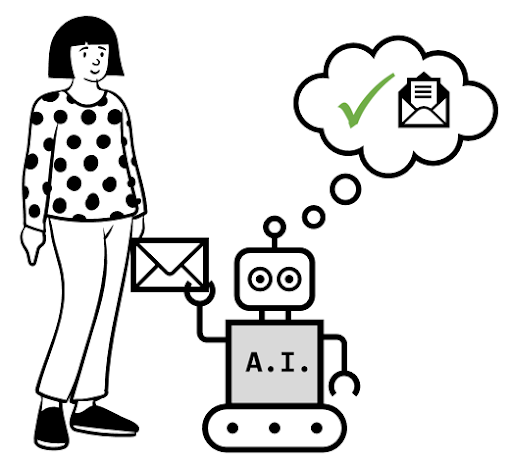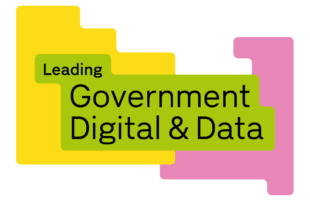This week is the Civil Service Data Challenge final - here we meet the finalists.
Team name
Sorting Mail Items With AI
Meet the team
Eric Everitt (founder), End of Year Team, PT Operations, HMRC
Vera Pudilova, (Team Leader), Environment Agency
George Wood, Data Scientist, Government Security Group, Cabinet Office
Mohit Motwani, Senior Data Engineer, DIPAD, AD, Department for Transport
Laura Winstanley, VAT Caseworker, Central Region, Wealthy & Mid-Sized Business Compliance
James Sheppard, Lead Technical Architect, Government Digital Service
Sam Wilmington, HMRC (MBCS) Product Manager, HMRC Early User Insight and Design
Dan Hawley, CCG Transformation, HMRC
Federica Talato, Shared Services
Senior Responsible Officer: Kaye MacDonald (Operational Excellence Deputy Director)
CDIO Data Science:
Adrian Tuff (Team Leader, Assistant Director)
Chris Penn (Data Scientist & Tax Professional)
Joe Fallon (Data Scientist, Data Exploitation)
Gavin Thompson (Data Scientist, Technical Lead)
Matthew Malcher
We also have our DMS technical contacts:
Richard Jackson, Delivery Manager (CDIO Customer Compliance Group)
Steve Bickle (Technical Architect)
Andrew Flint (Technical Architect, CDIO Customer Compliance Group)
We made connections through HMRC Transformation:
Nadia Shah, Cross Government & Data Innovation Lead, Portfolio Strategy & Foresight
Sean Connolly MBE (Portfolio Strategy and Foresight)
Nicola Bibby (P&UCD Ops - Chief Technology & Design Office, CDIO) ran a useful Performance Analytics workshop.
We are grateful for help and advice from Stefan Turcu and Glen Walters of NTT Data, also Operational Excellence, ENP Media, and 10 Downing Street.
The idea

The Digital Mail Service (DMS) is not working as well as it should. We receive about 9 million letters each year and their journey to the correct team is not always direct: letters may sit in the wrong queue for some time before being forwarded on.
We have a vast archive of over 60 million letters on file. We know the text and the end team where the query was resolved. This represents the collective knowledge of all HMRC employees. My idea is to tap into that unused resource with Machine Learning. We can train an algorithm on our historical data, to get new correspondence directly to the right team, first time.
There are more than 20,000 civil servants using DMS. It is quite a puzzle deciding which of the 901 teams an item of post belongs to. With our algorithm using the ‘wisdom of the crowd’ to make decisions, civil servants would waste less time redirecting post and more time on casework. Letters would not be held up in incorrect queues, so we could provide a better, faster service to the public.
We hope to prove that Machine Learning works well for HMRC, and then that the model can be extended to process incoming mail for other departments.
Main motivations for entering Data Challenge 2023
I (Eric) noticed that my team received a lot of misdirected post which could sometimes lead to a wait for customers, through no fault of their own. I wanted to do something about that. My wife is a research scientist working with Machine Learning and I realised that this technology could be applied to our post problem.
Submitting the entry
Some team members were assigned to the task, many volunteered their services. Others we connected to along the way as we looked deeper into the problem.
We did not know each other before the Data Challenge. The great thing about it is that it brings together people from different departments to work together for a common goal.
We work well together because of diversity! Our different experiences and specialities have made a strong team with broad knowledge and lots of connections to other departments. ‘When the diversity in a group is large, the error of the crowd is small.’
The Data Challenge experience so far
It’s a great opportunity to make a difference. Instead of a General ordering the troops, it’s the foot-soldiers who are making things happen. I’ve met lots of interesting people from different government departments and had the Dragons’ Den experience of pitching my idea to a panel of experts.
The media team at the semi finals tried to put us at ease as they were fitting us with microphones. They gave us a quick run-through of what to expect, so we could concentrate on getting our message across. I am glad we were well-rehearsed. We were certain of our ten-minute presentation, but we could only guess what the judges might ask in the Q&A section.
It was a great feeling to get the news that we made it to the finals, but not totally unexpected. The semi-final presentation went well and we were confident that it’s a great idea to start with (though I do say so myself).
My colleagues and manager are very proud of me (Eric). As the importance of the project has become evident, I have received congratulations from further and further up the chain of command. We are receiving offers of help from far and wide.
Register to attend the Civil Service Data Challenge Final on 23 March.

Leave a comment